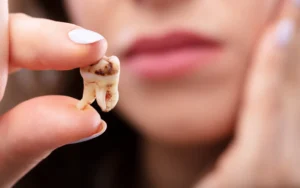The temporomandibular joint (TMJ) is the hinged joint connecting your mandible (jaw) to your skull. It’s what allows you to open your mouth, yawn, chew, and move the jaw up and down when speaking. When the TMJ becomes injured or damaged, it can cause localized pain, temporomandibular joint syndrome, or a collection of symptoms called temporomandibular disorder (TMD).
Pain can also radiate from the joint into the mouth and head, causing pain in the face and leading to headaches and migraines.
If you’re experiencing soreness just in front of the ear or feel pain radiating outward from that point, you’re suffering from TMD. At Sargon Dental, Dr. Sargon Lazarof and his team diagnosis TMD and determine the best way to stop your pain. Here’s what you need to know.
The causes and symptoms of TMJ problems
Aside from a direct injury to the jaw, such as a blow or a fall, the exact reason for TMDs is often not readily apparent. For many people, the discomfort may be a combination of genetics, arthritis (which affects the joints), and bruxism, which includes jaw clenching and teeth grinding. Other possibilities include poor posture, stress, and the repetitive action of chewing gum.
There is also a range of symptoms that come with TMJ problems. These include:
If you don’t experience pain, limitation of movement, or jaw locking associated with the clicking and popping, you probably don’t require any treatment.
Help for TMJ problems
Sometimes, TMD resolves itself without treatment. However, if your symptoms persist, Dr. Lazarof may recommend one or more of the following treatments.
Medications: First, you should start with OTC pain relievers and anti-inflammatory medications to relieve the joint’s pain and discomfort. If these don’t prove to be strong enough, Dr. Lazarof may prescribe prescription-strength ibuprofen; one of the tricyclic antidepressants such as amitriptyline to relieve forin, control bruxism, and act as a sleep aid; or a short-term course of a muscle relaxant to calm muscle spasms that lead to pain.
Non-medication therapies
The most commonly used therapy is an occlusal splint or mouthguard. You wear this soft plastic device over your teeth when you sleep — and sometimes while awake — to prevent you from clenching your jaw or grinding your teeth, thus relaxing the TM joint.
Physical therapy is also a possibility. Sessions include exercises designed to stretch and strengthen your jaw muscles, as well as ultrasound treatments and moist heat and ice placed on the jaw to relax the joint.
Patient education and counseling can help you better understand the factors and behaviors that aggravate your pain, so you can learn to avoid them.
Lifestyle changes
The first step to correcting the problem is to become aware of what you’re doing to cause or exacerbate it. In the case of TMDs, clenching your jaw, grinding your teeth, chewing on pencils, leaning your chin on your hand, and biting your nails can all contribute to jaw muscle tightness and pain. Changing your habits can help the muscles relax and offer you relief.
Changing your eating habits can also help. Opt for softer foods, cut your food into smaller pieces, avoid sticky or chewy items, and ditch the chewing gum.
A physical therapist or Dr. Lazarof can show you how to massage the muscles to relieve tension, and you can combine this with moist heat or ice applied to your jaw joint for added relief.
If you’re struggling with TMJ symptoms, it’s essential to know that there’s help. To learn more about your options, call one of our three locations in Encino and West Hollywood, California, and Pleasant Grove, Utah, or schedule your appointment online.





